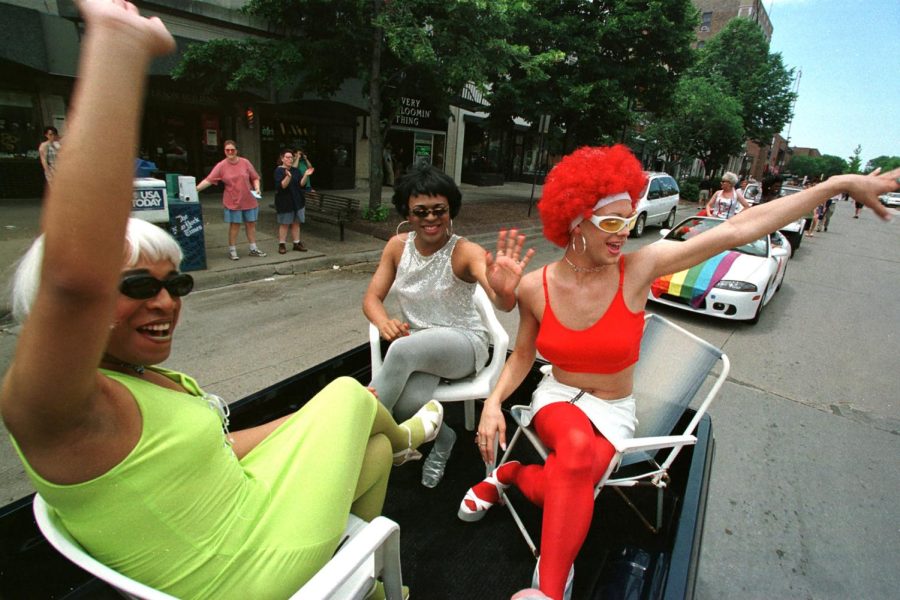Opinion | The importance of Pride History Month
October sheds light on the importance of celebrating those in the LGBTQ+ community.
Photo of a pride parade in downtown Iowa City from Sunday, June 21, 1998.
October 23, 2022
October is Pride History Month.
The month sheds light on those in the LGTBQ+ community, celebrating and acknowledging one’s identity and history.
As someone who is a part of the queer community, I am reminded this month — and every month — that I am accepted and loved by the growing community at the University of Iowa. I have been able to find a safe space for my identity, and I hope everyone else within the community is able to find the same here at the UI.
Each year, October commemorates the LGBTQ+ community through various marches, parades, shows, and drives — among a few other events. These events can be seen throughout the country, providing voices and raising awareness on why pride history is an important celebration.
Significance of Pride History Month
LGBTQ+ history not only highlights pride but reminds those in the community that those rights have roots, and there is history in our identities.
This month holds some important dates regarding pride and history. On Oct. 11, we celebrate National Coming Out Day. On Oct. 14, we remember the first gay and lesbian rights march that took place in Washington D.C. in 1979. On Oct. 20, people wear purple to represent LGBTQ+ youth in the community.
A few influential figures among the many to know in queer history include Marsha P. Johnson, Sylvia Rivera, Stormé DeLarverie, Leslie Feinberg, Edith Windsor, and James Baldwin. These figures have done their part for the queer community by becoming civil rights activists and icons during their time.
When I think about the people that fought and stood up for LGBTQ+ rights, I think about the pride and the courage that has been building within the community ever since.
However, the queer community is often hurt. Even with our sense of pride and courage, we fear being treated unfairly or harmed in any way.
Johnson, a transgender woman, became involved with the resistance in 1969 after police raided a gay bar called the Stonewall Inn — a monumental turning point in the fight for LGBTQ+ rights. During the raid, Johnson, alongside Rivera, stood at the front lines and led various protests for gay rights movements. In doing so, many people in the LGBTQ+ community were able to use their voices and find acceptance within themselves.
It can be scary to put yourself out into the world and show who you truly are. With extra support, the community can continue to grow in ways that strengthen one’s comfort in their pride.
So, what can be done during October to support the LGBTQ+ community?
There are many things that can be done. You can attend parades and events, donate, support LGBTQ+ organizations, and educate yourself on queer history and its influential figures.
Each year, the UI’s Pride Alliance Center plans a variety of events that span all of October. You can find a calendar of these events on their page.
These events focus on something different each week, involving pop-ups, socials, story sharing, and brunches to kick off the celebration.
This October, I hope you take the time to acknowledge and stand up with the voices of the LGBTQ+ community. There is always room for allyship and always room for acceptance of one’s identity and existence.
Columns reflect the opinions of the authors and are not necessarily those of the Editorial Board, The Daily Iowan, or other organizations in which the author may be involved.














